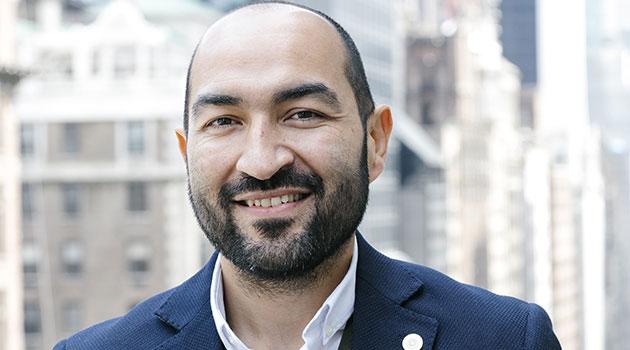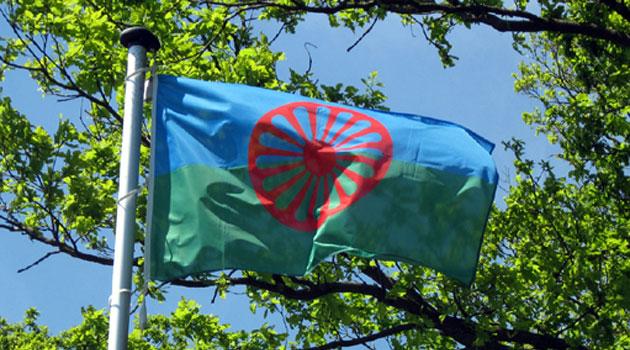Zeljko Jovanovic: The New Roma Politics of Self-Determination and Unity

In the midst of the Cold War, Roma leaders gathered in London in 1971 to proclaim self-determination and transnational unity among the Roma. At the first World Roma Congress, they agreed on symbols of unity: the blue-and-green flag with a red wheel under which we all stand with pride and sing “Gelem Gelem,” our anthem in Romanes, our language. These symbols have unified our people and our cause of self-determination for 50 years. They represent a political gift that my generation inherited from the previous one.
What political legacy will my generation leave behind for the next? In short, we should reinforce the transnational movement with the strongholds in our communities, continue building the Roma nation and unify Roma leadership around new moral foundations. Let me explain each of these.
VIDEO
First, in order to strengthen our transnational unity and political engagement we have to build local strongholds. In the last 50 years, we have relied on international organizations to change the way national governments treat us. In the name of “nothing about us without us,” our major Roma-led organizations like the International Roma Union and the European Roma and Travellers Forum built their relevance on consultative roles in the United Nations (UN) and the Council of Europe. In a similar way, the European Roma Information Office and the European Roma Grassroots Organizations network continued this tradition within the European Union (EU) institutions. All of these organizations, along with many other advocates, have raised concerns about our situation and recommended solutions.
However, the member states of international organizations have never really taken the situation of the Roma or our recommendations as a matter of urgency. In good times—between the fall of communism in 1989 and the financial crisis in 2008—governments expressed declarative commitments because they needed the US and the European Union, United Nations and other international organizations for funding and security. Now, especially since the 2008 financial crisis that strengthened populism and the far right, member states are undermining the international organizations. For example, Hungary and Poland challenge the very foundations of the EU, such as the rule of law, the United Kingdom has left the EU, and Russia has caused a serious crisis in the Council of Europe.
Looking at these developments, I have no illusion that we can rely only on the international organizations to have a bigger influence on national governments. The reality is that the national governments make the decisions in international organizations. Therefore, we have to reorient ourselves towards the building of national and local power bases in our communities. That is easier said than done, but it is unavoidable and fundamental.
The second task for my generation is to continue the project of unifying the Roma across national borders, kinships, religions, languages and other differences. In the last few decades, Roma unity as proclaimed in 1971 has been under new pressure. Besides forced assimilation by ethnic majorities or other minorities, tensions have grown between Roma on one side and some Ashkali, Egyptians, Sinti and Travellers on the other. Some of the spokespeople of these groups have different starting points but end with the same conclusion: they do not want these groups to belong to the Roma nation.
I leave the content of their arguments to the historians, linguists and anthropologists, but let us be clear about this: any identity is a shared construction, a unifying idea. The borders between “us and them” are always challenged. In our case, the Congress of 1971 defined the symbols that unify the Roma nation. Everyone has the freedom to embrace these or not. However, it is morally inconsistent to reject Roma belonging and at the same time use it to gain funding, political positions and opportunities. Moreover, calls by a few people to change our common name are unacceptable because they take us backward and annul the proclamations of 1971.
In favor of their arguments, some spokespeople from these groups, along with some policy makers and activists, say that we all suffer from the same problem―racism against the Roma, or anti-Gypsyism. This is indeed a valid rationale for building a coalition around public policies. However, since 1971, we have been seeking unity and self-determination not because of anti-Gypsyism but in spite of it. In other words, racism is one of many obstacles in our way, but our cause is bigger than anti-Gypsyism.
Finally, the third task for our generation is to unify Roma leadership around new values. In the early decades after the first Congress, the number of Roma leaders was small, so perhaps it was sufficient to unite solely around Roma belonging, but is this sufficient today?
It is not, because today there are many who speak up on behalf of Roma, especially via social media. The challenge today is how to recognize the difference between those who hide corruption, hypocrisy or incompetence behind demagogy and populism and those Roma patriots with integrity, consistency and competence.
For example, elected Roma leaders have representative legitimacy. Nevertheless, after 50 years, we have enough experience to recognize the difference between those who have put the collective interest above personal benefit and those who have not. We have also learned to distinguish between those who have the ability to use power and opportunity to advance our cause and those who do not. We have also seen these differences among the Roma civic organizations.
Other examples are the Roma religious leaders, who enjoy much more trust from our people than do elected and civic leaders. Some put anti-abortion causes before the Roma cause. In this way, they support the right-wing politics that also promotes racism. Some others prioritize religious identity at the expense of Roma identity, and this leads to either assimilation or divisions among the Roma. Other religious leaders use Roma identity to isolate Roma from politics so that others make decisions over our lives “without us.” However, we also recognize noble and inspiring religious leaders who demonstrate consistency among religious values, our unity and our struggle.
For this reason, my generation has to unify Roma politicians, religious leaders, civic advocates, artists, journalists, workers and people in business and sports who live by the following values. First is the value of public integrity, or putting collective interest above personal gain. It is much easier for us to demonstrate this on the streets or on Facebook, but it is more important to demonstrate it when we have a degree of power and opportunity. Second is the value of consistency between our words and our actions. Anyone can speak nice words about justice and equality for our people. However, we cannot claim equality for Roma while suppressing Roma women. We cannot pray to a God who loves and protects all and at the same time support the politics of racists, misogynists, Islamophobes or homophobes. The third value is competence. Many know how to describe problems, but only a few strive for knowledge and skills to find real solutions and lead others towards them.
Looking back, the 50-year legacy of the first World Roma Congress has been shaped by the Cold War, democratic transitions and financial crises. Today’s world is being shaped by populism, Covid-19, climate change, artificial intelligence, and other challenges. Building on the legacy of our predecessors and responding to the challenges of our times, we have to grow a transnational movement with a strong local presence, continue Roma nation-building across borders and unify Roma leadership with public integrity, competence and consistency. These are the foundations of a new Roma politics that my generation must build for the next one to take over and lead forward.
Opre Roma!
